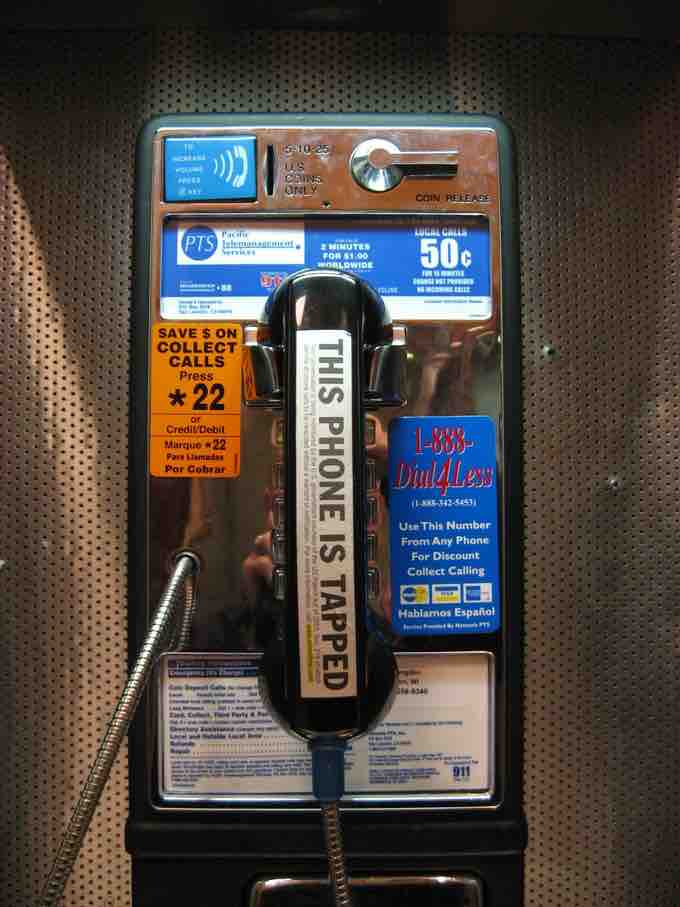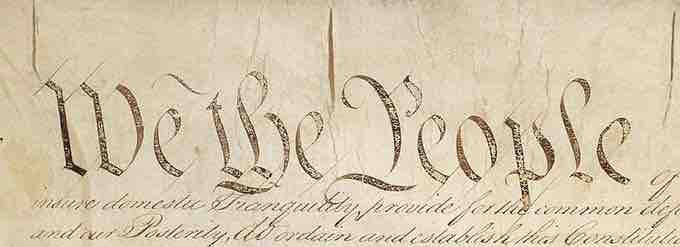Background
A roving wiretap is a wiretap specific to the United States that follows the surveillance target. For instance, if a target attempts to defeat surveillance by throwing away a phone and acquiring a new one, another surveillance order would usually need to be applied for. However, a roving wiretap defeats the target's attempts at breaking the surveillance by changing location or their communications technology. It is allowed under amendments made to Title III of the Omnibus Crime Control and Safe Streets Act of 1968 (the Wiretap Statute) in 1988 by the Electronic Communications Privacy Act and was later expanded by section 604 of the Intelligence Authorization Act for Fiscal Year 1999. On May 26, 2011, the U.S. Senate voted to extend the provisions of the 2001 USA PATRIOT Act to search business records and allow for roving wiretaps.

This Phone Is Tapped
The US Patriot Act of 2001, Section 216, permits all phone calls to be recorded without a warrant or notification.
NSA warrantless surveillance controversy
In 2007 a United States Foreign Intelligence Surveillance court ruling required that the NSA obtain a warrant when intercepting or eavesdropping on foreign-to-foreign intelligence if it passes through any U.S. networks. In response, the Bush administration passed stopgap legislation very quickly through Congress that temporarily relieved the NSA of this prior ruling. Director of National Intelligence Mike McConnell remarked to Congress that the new ruling could potentially decrease the amount of useful information they collected on groups like al-Qaeda by almost two thirds. He also stated that since applying for a warrant can run up to 90 pages, the process is exceedingly time consuming and labor intensive.
The American Civil Liberties Union (ACLU) brought many legal cases challenging the constitutionality of the bill, asserting that it violates Americans' right to free speech and privacy. They have filed lawsuits, motions, and complaints in over 27 states to oppose any legislation that encourages unchecked government surveillance. In response to the government arguments, Caroline Fredrickson, Director of the ACLU Washington Legislative Office has said of the bill: "Where will Congress go from here? More unfettered power for an administration that has no respect for the privacy of the citizenry that elected it? "
The stopgap expired in February 2008. By then, Congress and FISA reached a compromise on the details of the bill. ACLU advocates pushed to require that the NSA provide individual warrants when Americans were involved. On the other hand, U.S. intelligence agencies and the administration wanted as few obstacles in their way of intercepting private information. Both sides have shown the possibility of accepting a bill that would require a FISA court to approve NSA's procedures while intercepting foreign intelligence when it comes to Americans.
However, a later addition to this bill, that was insisted on by then President Bush and Mike McConnell, granted retroactive immunity to telecommunications companies for any "intelligence activity involving communications that was designed to detect or prevent a terrorist attack" or attack preparations. The Bush administration has acknowledged that intelligence agencies conducted warrantless eavesdropping on Americans with the help of Telecom companies such as Verizon, AT&T, and Qwest. All three of these Telecom companies faced multiple civil lawsuits related to their handling of phone records and the passing of this bill granted them immunity.
In favor of the bill, McConnell has stated that such immunity was necessary to prevent the telecoms from being bankrupted and to encourage them to continue to cooperate with intelligence agencies. Bush said that he would veto any intelligence bill passed that did not include such immunity. Liz Rose, spokeswoman for the Washington office of the ACLU, said the language of the bill is a blank check that would cover not only the warrantless wiretapping program that the Bush administration has acknowledged, but any unconfirmed or previously unknown program. Senator Russ Feingold from the District of Washington promised to lead a filibuster to block approval of retroactive immunity. Retroactive immunity set the terrible precedent that breaking the law is permissible and companies need not worry about the privacy of their customers, Feingold said.
Legal issues

United States Constitution
"We the People", as it appears in an original copy of the Constitution.
The NSA surveillance controversy involves legal issues that fall into two broad disciplines: statutory interpretation and Constitutional law. Statutory interpretation is the process of interpreting and applying legislation to the facts of a given case. Constitutional law is the body of law that governs the interpretation of the United States Constitution and covers such legal areas as the relationship between the federal government and state governments, the rights of individuals, and other fundamental aspects of the application of government authority in the United States.